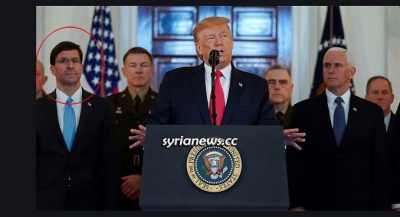Sanctions and Corruption: Three Major News Stories that Need to be Exposed
Bribes to get what Washington and giant multinational corporations want from fragile countries merits more reporting.

The news is filled with stories about President Trump and his predecessors imposing sanctions on other countries, their officials, and other prominent persons. But the media rarely spells out exactly what these sanctions are, the intermediaries who enforce them, the impacts they have on innocent civilians – women, men and children – how they are countered or evaded, and whether they fulfill or undermine their diplomatic, military, or economic purposes.
For example, sanctions against Iran by Trump increase by the year. They force banks and other financial institutions to cut off all decreed transactions, such as exports from Iran or purchase by Iran of critical spare parts, raw materials, even medical devices. Years ago, sanctions against Iraq under Saddam Hussein prohibited Iraq from purchasing chlorine to purify drinking water and children’s catheters. These sanctions produced deadly results for innocents. Iran’s economy is now in ruins and the brunt of the pain is suffered by innocent families. Under international law, disproportionate harm on civilians from sanctions is a serious violation.
Presently, from Trump there are sanctions on individuals in numerous countries, restricting their travel, their purchases and more. When banks like Citigroup and Bank of America are told by Washington to cut off any financial transactions from any companies doing business with a sanctioned country, do the banks receive payment for their trouble, or are there other quid pro quo rewards? We do not know. Secret government actions are pervasive, though sometimes a freedom of information request, followed by litigation, may pry open what is hidden.
Media alert! Sanctions are potential hotbeds for corruption and illegalities.
A little told story relates the tariffs Trump is imposing on imports from other countries, especially China. There are serious questions as to whether presidents have the constitutional authority or whether Congress must maintain authority on tariffs. Veteran constitutional law litigator Alan Morrison is now contesting sweeping executive tariff power in the federal courts. Reporting on this overreaching by the President is scarce.
Digging deeper, reporters should be asking what standards control presidential discretion or whims on imposing tariffs. The “national security flag” can’t just be waved arbitrarily.
Trump passes out many waivers for certain U.S. companies. Why, for example, did Trump give Apple CEO Tim Cook a waiver on tens of billions of dollars in iPhones imported from China, but not provide waivers to any number of smaller U.S. companies who buy products from China for their manufacturing or retail/wholesale sales?
Constitutional law specialist, Bruce Fein, says the absence of standards for giving waivers raises fundamental questions of unlawful delegation by Congress.
Media alert! Potential incentives for corruption and lawlessness in these burgeoning behind the scenes intrigues are huge.
The third hotbed of abuses relates to the charges by Washington that countries abroad tolerate “corruption,” and that security and economic relations with them are either jeopardized or unworkable. Such charges are regularly made against the governments of Afghanistan and Iraq – both militarily occupied by the U.S.
Corruption involves more than high-level officials taking bribes. Low-level public servants, so woefully underpaid, take money under the table to survive. As it happens, Ashraf Ghani, the elected president of Afghanistan, a former professor at Johns Hopkins University, was a leading expert on the nuances and functions of bribery in third-world countries. He can be a worthy source of knowledge on corruption.
U.S. agencies are a major generator of secret corruption in countries like Afghanistan. For example, cargo planes full of crisp one hundred dollar bills are shipped to Kabul and then trans-shipped to places like Kandahar. It doesn’t take much imagination to frame a reporter’s investigation—of what happens to cash in occupied, desperate societies.
Books and articles on the intelligence agencies note that cash handouts, big and small, are critical to achieve their purposes. There is so much bribery cash in Afghanistan that to stop the flow would seriously affect their shaky economy.
Bribery is a two way street – the briber and the bribee. Secret payments and bribes have often backfired against U.S. foreign policies in many undesirable ways.
Bribes to get what Washington and giant multinational corporations want from fragile countries merits more reporting, if only to show that a good deal of the bribery is under our control and within our power to reverse.
Media Alert!
From Common Dreams: Our work is licensed under a Creative Commons Attribution-Share Alike 3.0 License. Feel free to republish and share widely.
*
Note to readers: please click the share buttons above or below. Forward this article to your email lists. Crosspost on your blog site, internet forums. etc.
Ralph Nader is a consumer advocate, lawyer, and author. His latest books include: To the Ramparts: How Bush and Obama Paved the Way for the Trump Presidency, and Why It Isn’t Too Late to Reverse Course, How the Rats Re-Formed the Congress, Breaking Through Power: It’s easier than we think, and Animal Envy: A Fable
Featured image is from Syria News

